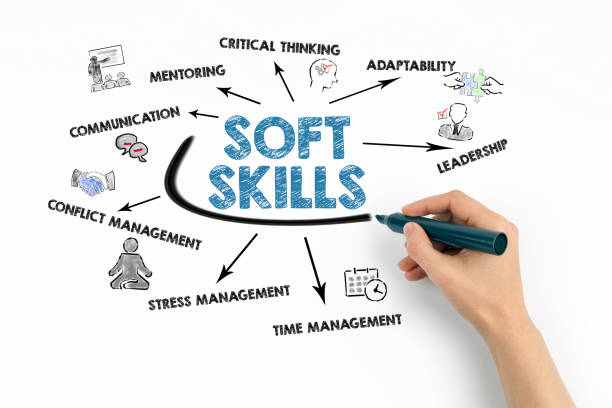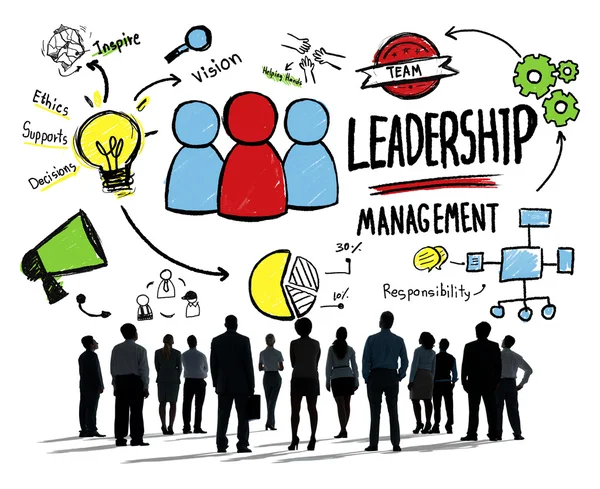
In today’s rapidly evolving professional landscape, technical skills and academic qualifications are no longer enough for career success. While hard skills such as coding, data analysis, and project management are crucial, soft skills have become equally—if not more—important for career advancement. Soft skills, popularly known as interpersonal or people skills, encompass a wide range of abilities that influence how individuals interact, communicate, and collaborate with others. These skills include communication, emotional intelligence, adaptability, problem-solving, leadership, and teamwork.
The 5 Important Soft Skills You Need
Soft skills are essential because they enhance your ability to work effectively with others and navigate complex work environments, especially in remote cases. In many industries, technical expertise can only take you so far; it’s the ability to communicate ideas, work collaboratively with diverse teams, and adapt to changing circumstances that sets top professionals apart.
1. Communication Skills
Effective communication is the cornerstone of any successful career. Whether it’s writing emails, giving presentations, or participating in meetings, the ability to articulate ideas clearly and confidently is vital. Good communicators can convey their thoughts in a way that is easily understood, fostering better collaboration and reducing misunderstandings. This skill is not limited to verbal communication; written communication, active listening, and non-verbal cues also play significant roles.
2. Emotional Intelligence

Emotional intelligence (EQ) refers to the ability to recognize, understand, and manage your own emotions while also being attuned to the emotions of others. High EQ individuals can navigate interpersonal relationships judiciously and empathetically, making them excellent team players and leaders. They can handle stress, provide constructive feedback, and resolve conflicts effectively, all of which are crucial for career growth.
3. Adaptability and Flexibility
In an era marked by rapid technological advancements and shifting market dynamics, adaptability is a prized asset. Professionals who can adjust to new challenges, learn new skills quickly, and remain open to feedback are more likely to thrive. Flexibility in the workplace means being willing to take on different roles, work with diverse teams, and embrace change as an opportunity for growth.
4. Problem-Solving and Critical Thinking
Employers value individuals who can think critically and solve problems efficiently. This involves analysing situations, identifying potential solutions, and making informed decisions. Problem-solving skills demonstrate your ability to handle complex tasks and contribute to the organisation’s success. It also shows initiative and a proactive attitude, which are key traits for career advancement.
5. Leadership and Teamwork

Leadership is not confined to managerial positions; it’s about inspiring and motivating others, taking responsibility, and driving projects to completion. Strong leaders possess a blend of vision, integrity, and the ability to empower their teams. Similarly, teamwork is essential in almost every profession. The ability to collaborate effectively with colleagues, respect diverse perspectives, and contribute to a positive team dynamic is invaluable.
The Role of Soft Skills in Career Advancement
Soft skills play a critical role in career progression for several reasons:
- Building Strong Relationships: Soft skills help in building rapport with colleagues, clients, and superiors. Strong professional relationships can lead to better job opportunities, mentorship, and career growth.
- Enhancing Employability: Employers look for candidates who not only have the technical know-how but also the interpersonal skills to thrive in a collaborative environment. Demonstrating strong soft skills during interviews can significantly increase your chances of getting hired.
- Facilitating Leadership Opportunities: As you advance in your career, leadership roles often require more than just technical expertise. The ability to manage teams, communicate effectively, and resolve conflicts are crucial for leadership positions.
- Improving Job Performance: Soft skills contribute to better job performance by enabling you to work more efficiently, manage your time effectively, and adapt to new challenges. This can lead to recognition, promotions, and increased job satisfaction.
- Fostering a Positive Work Environment: Professionals with strong soft skills contribute to a positive and productive work environment. They can navigate workplace dynamics, support their colleagues, and foster a culture of collaboration and respect.
Developing Soft Skills
While some soft skills come naturally, they can also be developed and honed over time. Here are some ways to enhance your soft skills:
- Seek Feedback: Regularly ask for feedback from colleagues, supervisors, and mentors to identify areas for improvement.
- Engage in Ccontinuous learning Participate in workshops, seminars, and online courses focused on communication, leadership, and other soft skills.
- Practice Aactive listening Focus on truly understanding what others are saying before responding. This can improve your communication and interpersonal relationships.
- Volunteer for New Projects: Taking on different roles and responsibilities can help you develop adaptability, problem-solving, and teamwork skills.
- Reflect on Experiences: Regularly reflect on your professional interactions and identify what worked well and what could be improved.
Conclusion
In conclusion, soft skills are indispensable for career advancement. They complement technical abilities, enhance employability, and pave the way for leadership opportunities. By investing in the development of soft skills, professionals can achieve greater career success, build meaningful relationships, and contribute positively to their oorganisations
FAQs
1. What are soft skills, and why are they important?
Soft skills are interpersonal attributes that influence how effectively individuals interact and work with others. They are important because they enhance communication, teamwork, and problem-solving abilities, which are essential for career growth.
2. Can soft skills be learned or improved?
Yes, soft skills can be developed through practice, feedback, and continuous learning. Engaging in professional development activities and reflecting on personal experiences can significantly enhance these skills.
3. How do soft skills differ from hard skills?
Hard skills are technical abilities and knowledge specific to a job, such as coding or data analysis. Soft skills, on the other hand, are interpersonal and behavioral traits that affect how individuals interact and collaborate with others.
4. Why do employers value soft skills?
Employers value soft skills because they contribute to a positive work environment, effective teamwork, and strong leadership. These skills are crucial for navigating workplace challenges and achieving organizational goals.
5. What are some examples of soft skills?
Examples of soft skills include communication, emotional intelligence, adaptability, problem-solving, leadership, teamwork, and time management.
6. How can I showcase my soft skills in a job interview?
You can showcase your soft skills by providing specific examples of past experiences where you demonstrated these abilities. Highlight situations where your communication, teamwork, or problem-solving skills contributed to successful outcomes.
7. Are soft skills more important than hard skills?
Both soft and hard skills are important. While hard skills are necessary for performing specific job tasks, soft skills are essential for effective collaboration, leadership, and career advancement.
8. How do soft skills impact career advancement?
Soft skills impact career advancement by enhancing job performance, facilitating leadership opportunities, and building strong professional relationships. They are key to navigating workplace dynamics and achieving long-term career success.
9. Can soft skills be included on a resume?
Yes, soft skills can be included on a resume, especially in the skills section or within job descriptions. Use specific examples to demonstrate how you’ve applied these skills in previous roles.
10. How do soft skills contribute to a positive work environment?
Soft skills contribute to a positive work environment by fostering effective communication, collaboration, and conflict resolution. They help build trust and respect among colleagues, leading to a more productive and harmonious workplace.

